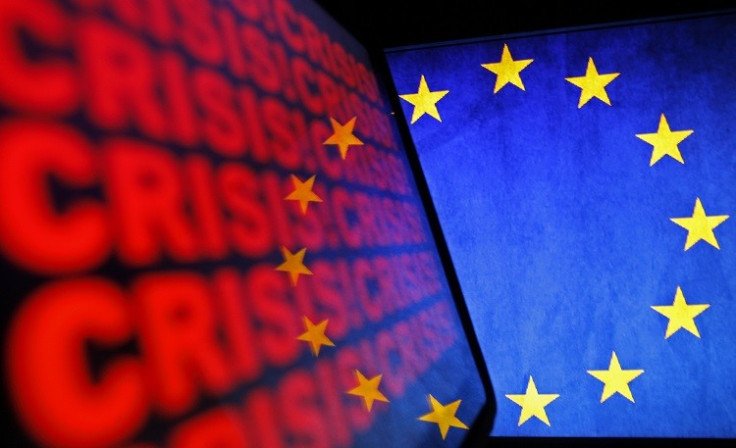EU CDS Antitrust Probe: Banks Told to Destroy Poorly Redacted Confidential Information Handed to Them

Thirteen of the world's biggest investment banks have been ordered to destroy DVDs containing confidential information accidentally sent to them by European Union financial regulators after documents within the discs were not properly redacted.
The sensitive documents, which relate to the EU's antitrust investigation into the credit default swaps market, were not redacted using sophisticated enough IT software and the covered text can, with the right technology, be revealed.
Blame was laid at the doors of lawyers working on behalf of companies who were filing statements of objections against the banks in relation to the CDS probe. The EU suspects the banks involved may "may have breached EU antitrust rules that prohibit anticompetitive agreements" in the CDS market.
It was only when the statements of objections were sent over by the European Commission to the banks in July, so they could work on their defences against the allegations, that the redaction gaffe was uncovered.
An unnamed law firm used forensic IT to brose the released files and discovered that some of the previously redacted information became viewable. The Commission was then informed and stopped the file access while it investigated.
All parties were ordered to re-verify their submitted documents and provide non-confidential information only. New DVDs were subsequently sent out to the banks' lawyers.
The Commission absolved itself of any responsibility for the sensitive information leak.
"The access to any confidential information remained limited in scope as only a fraction of the documents of the Commission's file were concerned by the incident," said Antoine Colombani, a European Commission spokesman for competition and antitrust Vice President Joaquín Almunia.
"It is the parties' own responsibility to redact adequately the information they consider confidential in the non-confidential versions of the documents they submit to the Commission and to use sufficiently robust IT software versions for redacting sensitive information.
"The Commission declines any responsibility if document owners neglect this warning and use inappropriate IT software to redact sensitive information."
The banks under investigation by the Commission are Bank of America Merrill Lynch, Barclays, Bear Stearns (now part of JP Morgan), BNP Paribas, Citigroup, Credit Suisse, Deutsche Bank, Goldman Sachs, HSBC, JP Morgan, Morgan Stanley, UBS and the Royal Bank of Scotland.
Two bodies connected to them, financial data firm Markit and the International Swaps and Derivatives Associations (Isda), have also been dragged into the probe, which is covering a time period of 2006 to 2009.
"CDS are contracts allowing investors to reduce or eliminate the risk that a borrower will default on a loan or a bond. At the time, CDS were traded over the counter," said the Commission in July.
"This means that they were negotiated privately and bilaterally, rather than traded on exchanges. However, exchanges did try to enter this market. Indeed, Deutsche Börse and then the Chicago Mercantile Exchange (CME) attempted to launch central clearing and exchange trading of credit derivatives, for which there was already a widespread demand among investors.
"To launch these exchange-traded credit derivatives, the exchanges needed licenses for data and index benchmarks. But ISDA and Markit refused to provide these licenses because - according to our findings at this stage of the investigation - the banks had instructed them not to do so.
"In addition, several investment banks sought to shut out exchanges in other ways, for example by coordinating among themselves the choice of their preferred clearing house. In the end, neither Deutsche Börse nor CME managed to enter the market."
At the time, an Isda spokesperson said the body "is confident that it has acted properly at all times and has not infringed EU competition rules."
Credit Suisse, JP Morgan, Goldman Sachs, HSBC, UBS and Citi declined to comment, while the remaining firms did not return calls for comment from IBTimes UK.
© Copyright IBTimes 2025. All rights reserved.






















